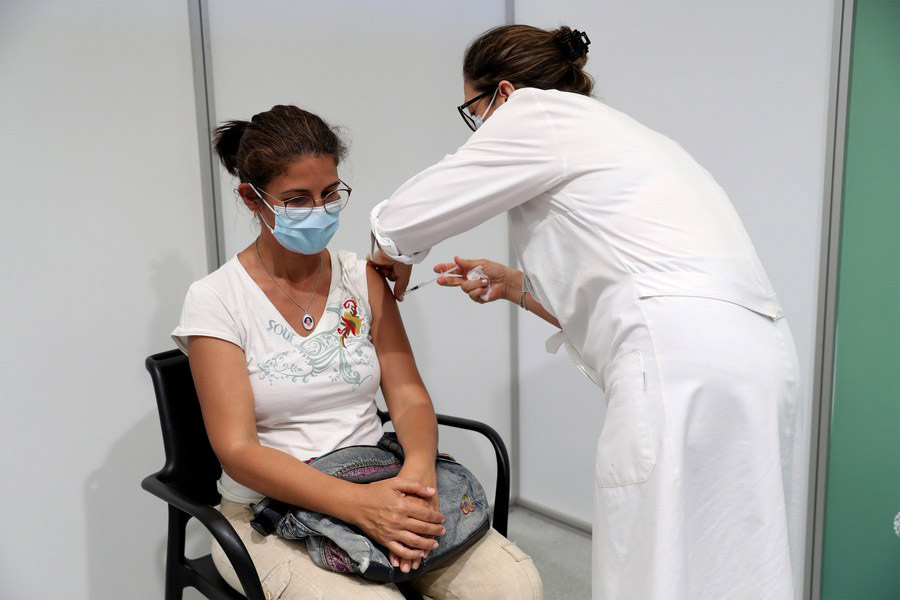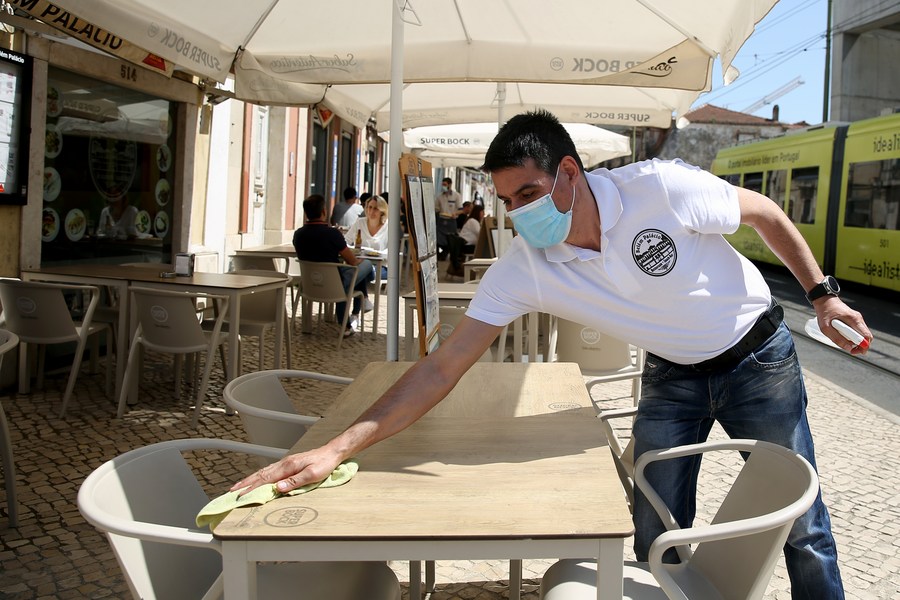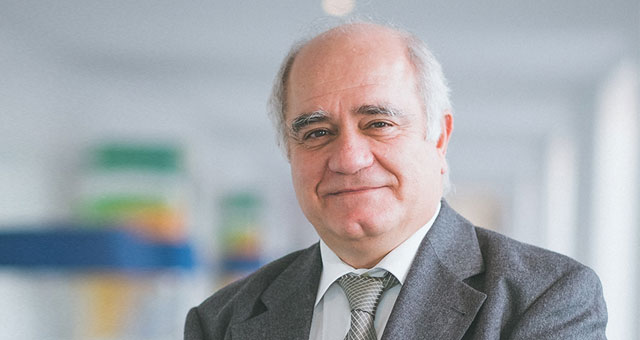Notícias
Destaques
Portuguese experts emphasize efficacy of vaccination, containment measures
Source: Xinhua | 2021-12-01 05:25:16 | Editor: huaxia

A woman receives a dose of COVID-19 vaccine at a vaccination center at Alcabideche sports complex in Cascais, Portugal, on July 16, 2021. (Photo by Pedro Fiuza/Xinhua)
According to Pocas, to be successful in controlling COVID-19, it is necessary to detect those infected as early as possible, be very assertive in identifying the strain, and isolate the possible contacts of the infected.
LISBON, Nov. 30 (Xinhua) — The recent spike in COVID-19 infections, hospitalizations and deaths has prompted the authorities in Portugal to announce a return to the “state of calamity” on Dec. 1. The new measures include intensified health checks at the country’s borders and the reinforcement of the vaccination campaign.
In an exclusive interview with Xinhua, infectious disease specialist Jose Pocas, director at the Hospital de Sao Bernardo in Setubal, said that the pandemic situation in Portugal is “very uncertain.”
“There is a rapid rise in new cases, especially ones caused by the new (Omicron) variant of the virus, and there is a possibility that further mutations remain to be discovered.”
However, Portugal is in a “privileged situation” because the levels of vaccine acceptance are high even in comparison to the other, more developed countries of Europe.

Passengers arrive at Lisbon airport in Portugal on May 19, 2021. (Photo by Pedro Fiuza/Xinhua)
According to Pocas, vaccine refusal is practically non-existent in Portugal, which makes it a “model for other countries,” and leaves the population “more protected against new strains” of the virus.
“The COVID-19 situation in each country mirrors the level of vaccine acceptance there. In other words, countries where more than 25 percent of the population are not immunized are bound to experience more severe cases, and higher transmission and mortality rates,” Pocas said.
According to Pocas, the cases of the new Omicron variant were detected in Portugal among members of a professional football club, and the isolation of those infected could control the outbreak.
“Portugal is doing what is needed: border control, cancellation of flights to countries with more serious situations, and internal health protection measures,” he said.
“The measures adopted by Portugal have already proven effective, but it will never be possible to completely prevent the spread of the disease. Even those who are vaccinated are not completely protected, but it is better to vaccinate people to prevent an exponential growth in infections.”
According to him, to be successful in controlling COVID-19, it is necessary to detect those infected as early as possible, be very assertive in identifying the strain, and isolate the possible contacts of the infected.
“We must not panic, but we must be alert and be very active. Each citizen must comply with the measures in force, which are easy to do,” he said.
Margarida Tavares, infectious diseases specialist at the Hospital S. Joao in the city of Porto, considers most of the measures implemented by the government “adequate.” These include the mandatory use of face masks and the wider use of the vaccination certificate.
However, she believes it is necessary to be cautious because the PCR (polymerase chain reaction) test “may indicate as positive past infections that are no longer contagious.”
Tavares also supports the reinforcement of the vaccination campaign and she considers it “essential” to commence with the vaccination of children older than five, as that is the “age group that shows a higher incidence rate.”
In Portugal, 1,161,527 people have already received a booster dose against COVID-19, according to the latest vaccination bulletin released by the Portuguese Health Directorate, and 8,574,702 people have already completed primary vaccination with two doses.

A waiter cleans tables at restaurant terrace in Lisbon, Portugal, April 5, 2021. (Photo by Pedro Fiuza/Xinhua)
Outros artigos em Destaque:

Dr. José Poças homenageado com Medalha de Mérito 2022 no 25º Congresso Nacional da Ordem dos Médicos
Assessorou a OM, o SMZS, a DGS a ERS, o Governo Civil e a ARS de Setúbal em diversas iniciativas, organizou mais de 100 Reuniões Médicas, fez mais de 300 apresentações em Reuniões Científicas e participou em quase outras tantas, fez mais de 150 publicações, integrou mais de 20 projetos de investigação…

Debate: A Relação Médico-Doente: ontem, hoje e amanhã
A relação Médico-Doente: ontem, hoje e amanhã | o Dr. José Poças, Diretor do Serviço de Infeciologia do Centro Hospitalar de Setúbal, participa no debate “Reflexões sobre os fundamentos da Humanização da atividade médica”

Consulta de PrEP: “Diversificar e aumentar a variabilidade da resposta”
O Dr. José Poças, infeciologista no Centro Hospitalar de Setúbal, foi o moderador da mesa-redonda que decorreu na tarde do segundo dia do XV Congresso Nacional de Doenças Infeciosas de Microbiologia Clínica e XIII Congresso Nacional VIH/SIDA.

O Dr. José Poças participa no Debate “Aspetos controversos no controlo epidemiológico das Doenças Infeciosas: Ética, Direito e Saúde Pública”
Das 15.00 às 16.30 o Dr. José Poças irá presidir à Mesa Redonda: “O que há a dizer acerca de uma possível lei para o internamento compulsivo no âmbito das doenças infetocontagiosas”













